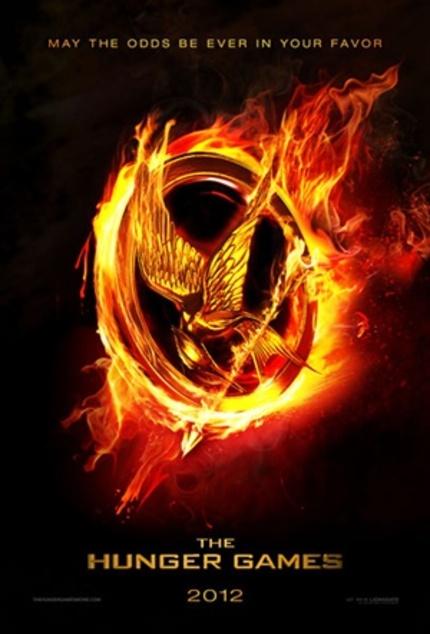Lionsgate Backpedals After HUNGER GAMES Charity Threat

Lionsgate is already backpedaling after a cease-and-desist letter they sent to a charitable organization became public on Thursday morning and immediately caused a stir.
ThinkProgress broke the story and provided context on Imagine Better, the charity-minded group, and their partnership with Oxfam in launching a campaign (and website) titled "Hunger is Not a Game." Lionsgate's email to the group is reproduced in full at ThinkProgress; they explain their partnership with "two large organizations fighting hunger, the UN's World Food Program and Feeding America" and say: "We understand and support your cause and mission. We are on the same side." Yet they also state:
"What is not a part of the Lionsgate plan is the distortion of our Motion Picture title. That is what Oxfam has done with your "Hunger is not a Game" logo. And with the many website you have incorporated into your campaign. This is causing damage to Lionsgate and our marketing efforts."
Lionsgate requests the immediate removal of "any mention" of the slogan "Hunger is not a Game" from websites, adding:
"We are truly making an effort to work with you on this. We have the ability to take down your sites as a violation of our trademark and other intellectual property laws. We hope that will not be necessary as this is too serious a subject."
As a layman, that sounds like "cooperate or else," and as the story spread, it set off a minor firestorm across social media. Lionsgate, which aims to become a bigger player in Hollywood with The Hunger Games and its sequels, sounded like a big bully, a greedy corporate entity stomping on a fan-based, charitable initiative. In the moment when Lionsgate stands to reap tens of millions of dollars from its investment, we ask: Lionsgate, where is your charity?
Lionsgate, which has reportedly spent $45 million over the past year to market the movie -- about half of what bigger studios have spent on potential blockbusters -- quickly backpedaled. As reported in Los Angeles Times, the company noted their partnership with WFP (United Nations' World Food Program) and Feeding America and then claimed:
"Our requests to other fan-based initiatives center more specifically around the use of copyrighted materials which have been committed to the WFP and Feeding America. We absolutely support and encourage the efforts of organizations battling world hunger."
The spokeswoman also says that the company will not pursue legal action. The company has a trademark for "Hunger Games" (see link below), but it's not clear if that could be applied in this case, or which intellectual property laws might apply.
In any event, it was an uncharitable move by Lionsgate to threaten a charitable group with a takedown of their websites in this manner.







